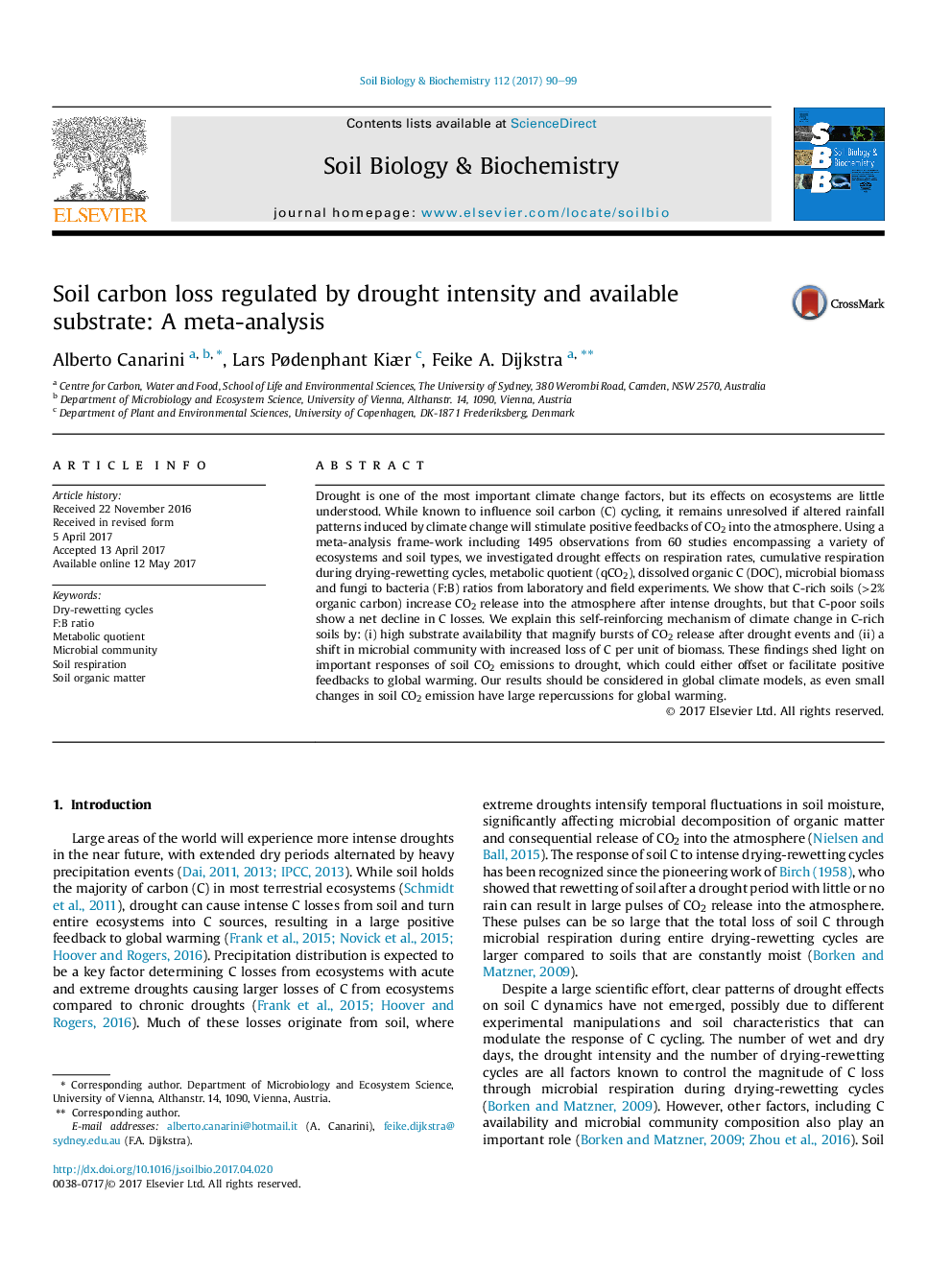| Article ID | Journal | Published Year | Pages | File Type |
|---|---|---|---|---|
| 5516340 | Soil Biology and Biochemistry | 2017 | 10 Pages |
â¢Results of meta-analysis from 1495 observations are shown.â¢Meta-analysis shows that C-rich soils lose more C during dry-rewetting cycles.â¢An intense drought is necessary to initiate this response.â¢Available substrate and changes in microbial community mediate the response.
Drought is one of the most important climate change factors, but its effects on ecosystems are little understood. While known to influence soil carbon (C) cycling, it remains unresolved if altered rainfall patterns induced by climate change will stimulate positive feedbacks of CO2 into the atmosphere. Using a meta-analysis frame-work including 1495 observations from 60 studies encompassing a variety of ecosystems and soil types, we investigated drought effects on respiration rates, cumulative respiration during drying-rewetting cycles, metabolic quotient (qCO2), dissolved organic C (DOC), microbial biomass and fungi to bacteria (F:B) ratios from laboratory and field experiments. We show that C-rich soils (>2% organic carbon) increase CO2 release into the atmosphere after intense droughts, but that C-poor soils show a net decline in C losses. We explain this self-reinforcing mechanism of climate change in C-rich soils by: (i) high substrate availability that magnify bursts of CO2 release after drought events and (ii) a shift in microbial community with increased loss of C per unit of biomass. These findings shed light on important responses of soil CO2 emissions to drought, which could either offset or facilitate positive feedbacks to global warming. Our results should be considered in global climate models, as even small changes in soil CO2 emission have large repercussions for global warming.
